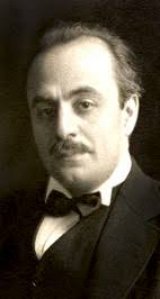Analysis of On Work
Kahlil Gibran 1883 (Bsharri, Mount Lebanon Mutasarrifate) – 1931 ( New York City)
Then a ploughman said, Speak to us of Work.
And he answered, saying:
You work that you may keep pace with the earth and the soul of the earth.
For to be idle is to become a stranger unto the seasons, and to step out of life’s procession, that marches in majesty and proud submission towards the infinite.
When you work you are a flute through whose heart the whispering of the hours turns to music.
Which of you would be a reed, dumb and silent, when all else sings together in unison?
Always you have been told that work is a curse and labour a misfortune.
But I say to you that when you work you fulfil a part of earth’s furthest dream, assigned to you when the dream was born,
And in keeping yourself with labour you are in truth loving life,
And to love life through labour is to be intimate with life’s inmost secret.
But if you in your pain call birth an affliction and the support of the flesh a curse written upon your brow, then I answer that naught but the sweat of your brow shall wash away that which is written.
You have been told also that life is darkness, and in your weariness you echo what was said by the weary.
And I say that life is indeed darkness save when there is urge,
And all urge is blind save when there is knowledge,
And all knowledge is vain save when there is work,
And all work is empty save when there is love;
And when you work with love you bind yourself to yourself, and to one another, and to God.
And what is it to work with love?
It is to weave the cloth with threads drawn from your heart, even as if your beloved were to wear that cloth.
It is to build a house with affection, even as if your beloved were to dwell in that house.
It is to sow seeds with tenderness and reap the harvest with joy, even as if your beloved were to eat the fruit.
It is to charge all things you fashion with a breath of your own spirit,
And to know that all the blessed dead are standing about you and watching.
Often have I heard you say, as if speaking in sleep, “He who works in marble, and finds the shape of his own soul in the stone, is nobler than he who ploughs the soil.
And he who seizes the rainbow to lay it on a cloth in the likeness of man, is more than he who makes the sandals for our feet.”
But I say, not in sleep but in the overwakefulness of noontide, that the wind speaks not more sweetly to the giant oaks than to the least of all the blades of grass;
And he alone is great who turns the voice of the wind into a song made sweeter by his own loving.
Work is love made visible.
And if you cannot work with love but only with distaste, it is better that you should leave your work and sit at the gate of the temple and take alms of those who work with joy.
For if you bake bread with indifference, you bake a bitter bread that feeds but half man’s hunger.
And if you grudge the crushing of the grapes, your grudge distils a poison in the wine.
And if you sing though as angels, and love not the singing, you muffle man’s ears to the voices of the day and the voices of the night.
| Scheme | ABXC XD DXXC D XXXAEX EXXXCB XXXB XXXXX |
|---|---|
| Poetic Form | |
| Metre | 101111111 011010 1111111101001101 11110110101010010011111010110010001010010100 1111101111010010101110 1111101101011110100100 1111111101010010 111111111110111101011110111 001001111101101 01111111110011110 111011111010000110101100111111011101111110111110 111110111100011001101111010 011111011011111 01111111110 01101111111 01111011111 0111111101101011010011 01111111 111101111111101110101111 11110110101011101011011 1111111000101011101110101101 11111111010111110 01111011110011010 101111111100111101001011111001110111101 01110011111010010111111110101101 11110110011110111110101011101110111 0101111101101010111011110 1111100 011101111101011110111111011011010011111111 11111101001101011111110 0111010101111010001 011111100110101101110101010010101 |
| Characters | 3,162 |
| Words | 604 |
| Sentences | 23 |
| Stanzas | 8 |
| Stanza Lengths | 4, 2, 4, 1, 6, 6, 4, 5 |
| Lines Amount | 32 |
| Letters per line (avg) | 74 |
| Words per line (avg) | 19 |
| Letters per stanza (avg) | 294 |
| Words per stanza (avg) | 75 |
Font size:
Citation
Use the citation below to add this poem analysis to your bibliography:
Style:MLAChicagoAPA
"On Work" Poetry.com. STANDS4 LLC, 2024. Web. 17 Apr. 2024. <https://www.poetry.com/poem-analysis/54030/on-work>.


Discuss this Kahlil Gibran poem analysis with the community:
Report Comment
We're doing our best to make sure our content is useful, accurate and safe.
If by any chance you spot an inappropriate comment while navigating through our website please use this form to let us know, and we'll take care of it shortly.
Attachment
You need to be logged in to favorite.
Log In